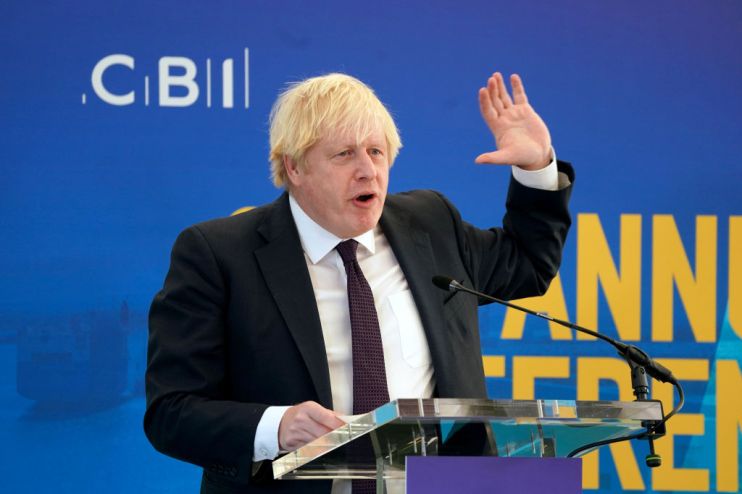In defence of Peppa Pig, an unlikely flagbearer of Britain’s financial finesse

Whisper it softly, but hidden in Boris Johnson’s bungled speech to the CBI on Monday, was a half decent idea struggling to get out. Forget the repeated apologies, the shuffled papers or the bizarre anecdote about his weekend, the star of the show was Peppa Pig, that irritating cartoon creature that toddlers adore.
As the Prime Minister may have been trying to tell us, Peppa Pig is a uniquely British success story, and an archetype for the way the nation should earn its living in this harsh post-Brexit world.
For any adult who has had the misfortune to sit through a Peppa Pig cartoon, it may look primitive and facile. It is anything but. At the outset in 2004, the creators at Ashley Baker Davis, the animation company, used a combination of imagination, research and commercial nous to bring to life a set of characters that pre-school children would adore. Their animators had the technical skills to turn that creation into literally hundreds of five minute cartoons.
Then ABD turned to the big guns -Entertainment One. They acquired the rights and turned a national phenomenon into a global one, agreeing more than 1000 licences in more than 100 countries.
If that sounds easy, it isn’t.
Behind the extraordinary success of Peppa Pig is the rule of British law to protect its trademarks and copyright, and the capital markets in the form of Entertainment One’s shareholders who back the business’s growth through its quote on the London Stock Market. EOne’s success in taking Peppa Pig around the world is a testament to the global outlook of Britain’s business community.
And then, once Peppa Pig had been transformed into a multibillion dollar monster, EOne was able to realise that investment in 2019 by agreeing a $3.8bn sale to Hasbro, the US toy and media group. That’s nought to $3.8bn in just 15 years from a brilliant idea that was then relentlessly developed and exploited.
None of this happened by accident. There are few countries in the world that could bring together the creative and technical minds of the original cartoons, with the commercial nous and determination of the licensing team, together with the access to finance and the governance of a London listed public company.
Where else could Peppa have been born? Surely not in the US, where so much television production is these days achingly formulaic and risk-taking is a forgotten art. Certainly not in China where Peppa is seen as a subversive gangsta, and the authorities want to censor her. The French would have no doubt derided Peppa as vulgar, but when she become a global phenomenon they would have banned any sale of it, proclaiming that Mlle Peppa was a national icon. Only in Britain do we have the range of skills to allow Peppa to bestride the world stage in the way it has.
What business wants from the government is to maintain the environment that created Peppa Pig. Not just a low and stable tax environment, although that’s essential, but access to brilliant creative minds and driven commercial professionals, a sound and deeply trustworthy legal system, deep pools of capital and an outward facing culture that enables it to open trade routes around the world.
For Britain to prosper outside the EU, it needs many hundreds of Peppas, in technology, healthcare, finance, sports and entertainment. We have the framework to do much of it, but there needs to be a reliable and business-friendly government to light the spark to cut through the red tape. When our Prime Minister bumbles in front of an invited audience and kills off a half-decent idea before it leaves the page, it hardly inspires confidence
